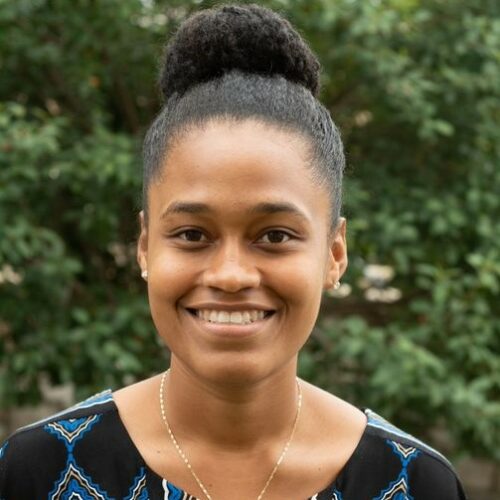
Statistical and data sciences professor uses structural equation modeling to show the importance of relationships in STEM degree persistence

Jillian Morrison, assistant professor of statistical and data sciences at The College of Wooster, was featured in the “Meet a Member” column of the February/March 2024 issue of MAA Focus, a publication of the Mathematical Association of America. Morrison discussed her passions in her work, including her recently published research on how social groups influence science, technology, engineering, and mathematics (STEM) majors’ persistence in completing their degree. She collaborated with Aubrey Whitehead, assistant professor of psychology at the Virginia Military Institute and former Perry-Williams postdoctoral fellow of psychology at Wooster, and Melissa Schen, director of educational assessment at Wooster, on the study, which was published in the Journal for STEM Education Research in June 2023.
“We wanted to identify the factors that motivate students to remain in STEM and help them to persist,” Morrison said. “This is important because we’re getting more and more STEM graduates from liberal arts colleges, and these colleges must be able to foster the environment that students in STEM need to be successful.”
The researchers surveyed 295 STEM majors from a small liberal arts college across all four years about how close social groups, including family members, friends, and professors, influenced their motivation to attain their degree. They then tested a hypothesized structural equation model to determine the subgroups that the students perceived most affected their degree persistence and motivational factors, such as self-efficacy and interest.
“The structural equation model, in simple terms, helped us identify these relationships between the dataset. What we found was that fathers, mothers, and professors have a significant role to play when it comes to students persisting in STEM,” said Morrison. “Often, we think students are most motivated by their friends, but that’s not all our data shows. Our data shows that up through the students’ senior year, parents and professors are also playing a huge role.”
The findings have implications for colleges that are looking to find ways to better support STEM students. “If we know who’s helping motivate them and who’s helping them to persist, then we can build programs and structures that help foster those relationships,” Morrison said. “At a small liberal arts college like Wooster, that may mean thinking about ways to support strong relationships between family members and STEM students. That could be inviting family members to events more often, either virtually or in person, and encouraging them to be huge cheerleaders. It also means supporting relationships between professors and STEM students by investing in faculty and hiring good professors. We want to make sure that the support system is there for these students.”
Morrison notes that by fostering these key relationships, colleges can support students both during their academic career and beyond. “If you look at statistics and data science jobs and the potential for careers in these fields in the coming years, we’re expecting exponential growth,” she said. “We need to ensure that we’re able to support students as they progress not only through their education, but also in their future careers. We want to help them become lifelong learners.”
In Morrison’s current research, she involves students in a variety of ways from conducting literature reviews to calculating sample sizes to creating R packages. “I love working with students and involving them in my research,” said Morrison, noting that Wooster’s STEM programs offer a number of similar research opportunities as well as support programs. “With anything that I work on, I try to find ways to involve students. I’m passionate about helping people figure out who they want to be and inspiring them to be the best version of themselves.”
Posted in Faculty, News on April 1, 2024.


